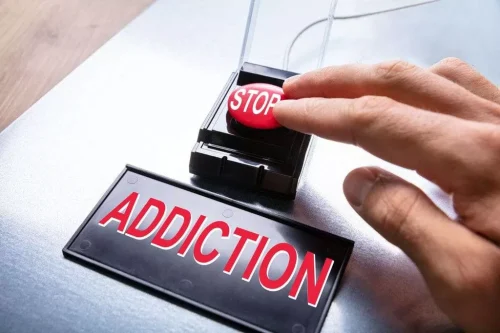
Strategies that are easier to implement may be more effective for some people. She enjoys interviewing medical experts and researchers about their work and is passionate about communicating accurate and relevant health information to the public. Forbes Health adheres to strict editorial integrity standards. To the best of our knowledge, all content is accurate as of the date posted, though offers contained herein may no longer be available. The opinions expressed are the author’s alone and have not been provided, approved or otherwise endorsed by our advertisers.

Recovery Coaching
Some people with a long history of alcohol misuse may start to experience seizures, which peak around 10 hours then taper off and subside entirely within 2 or 3 days. Minor, moderate, and severe withdrawal symptoms typically begin about 6 hours after the last drink is consumed. Whether you have a diagnosed mental health disorder or not, therapy is a positive tool for long-term recovery. A therapist can help you uncover key insights regarding your alcohol use and offer tools that will set you up for successful and satisfying long-term recovery. Excessive alcohol use often coincides with other mental health disorders. Many people in recovery discovered that mental health disorders, such as PTSD, anxiety, depression, ADHD, etc., and trauma helped to fuel their unhealthy relationship with alcohol.
Consider Medications to Help You Quit Drinking
If you find yourself in a situation where someone offers you a drink, just politely decline. Most of the time, people will back off, and if they don’t, stand firm and say you’re not drinking tonight. You don’t owe anyone your reasoning behind why you’re refraining. You’ve learned that your body has a natural ability to relax without alcohol, but knowing these techniques is only the first step.

myths about using Suboxone to treat opioid addiction
- In theory, setting one big giant goal of “never drinking again” makes sense.
- Some tools can help you mentally rehearse new, healthier ways to relax and manage stress.
- The company holds the value that anyone can recover and that treatment should address both physical and psychological concerns.
- Programming can range from hour-long sessions a few times a week to several hours per day.
For people who moderately consume alcohol, tapering off may be a good option. However, quitting cold turkey or tapering is not advisable for people with an AUD. If you’re struggling to wean off alcohol, it might be best to seek addiction treatment. Various treatment programs are available to help you recover from addiction.
- If you try one method and it doesn’t work, don’t lose hope.
- In addition to healthy lifestyle changes, group meetings focus on developing the motivation to change.
- If you’ve been drinking for a long time, you may experience withdrawal symptoms when you quit drinking.
How to accomplish your goals
Feeling at your best physically can boost resilience and emotional strength, equipping you to weather challenges that trigger the desire to drink. Letting others know about your choice to stop drinking may help motivate you to stick with your decision. From month-long sobriety challenges to the Sober Curious movement, more and more people are taking a closer look at the role alcohol plays in their lives. Get the help you need from a therapist near you–a FREE service from Psychology Today. Hallucinations usually diminish after 7 days, though for some, they can last up to 1 month.

Alcohol support
- Use these tried-and-true tips to quit or reduce your alcohol intake.
- Simply being here, reading tips on how to quit drinking, considering the possibilities of your future is a positive first step.
- Mental health and wellness tips, our latest guides, resources, and more.
- Various treatment programs are available to help you recover from addiction.
Through its holistic and scientific approach, Dr. Hochman aims to translate addiction recovery from the one-on-one treatment sphere into an easily accessible self-help program. Self Recovery uses a holistic treatment model that considers the underlying causes of addiction and incorporates these into a self-help program. The program also takes into account life stressors such as busy schedules, family obligations, financial problems, and judgment from others. Loosid also includes Boozeless Guides to help you find restaurants, travel destinations, or events that make it easy not to drink alcohol. There is also how to stop drinking a dating community for those looking for others who are practicing sobriety and looking for a relationship. The Loosid approach is based on celebrating sobriety as a preferred lifestyle.
More on Substance Abuse and Addiction
Support groups are run by facilitators who lead members through a structured program that delves into mental health and addiction with a focus on the present instead of the past. You may find it helpful to look for mutual support groups, such as Alcoholics Anonymous and other groups, where you can connect with people who share experiences similar to yours. A support group specifically focused on alcohol recovery can provide valuable encouragement and information that can aid you on your road to being free from alcohol. Professional treatment for an alcohol use disorder can involve outpatient therapy, residential treatment, or inpatient hospitalization. The level of care you need often depends on the severity of your condition.



